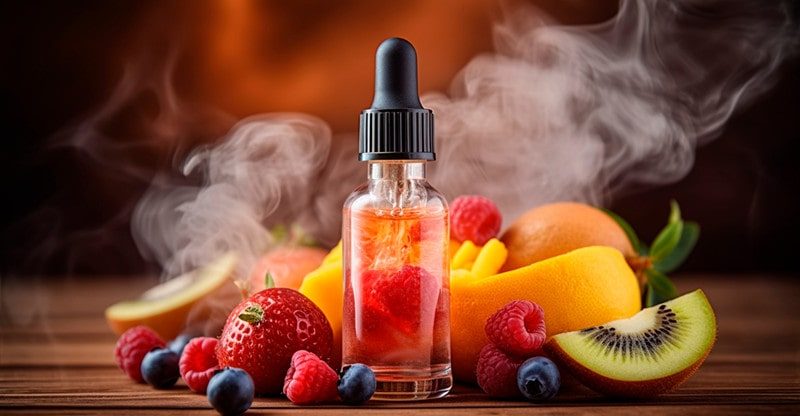Vaping has skyrocketed in popularity over the last decade, transcending its niche roots to become a mainstream cultural phenomenon. One of the major draws of vaping is the vast assortment of flavors available, offering something for virtually every palate. This article delves deep into the colorful world of vape flavors, exploring their variety, the science behind them, and the trends driving their evolution.
1. The Flavor Spectrum
From sweet and fruity to savory and spicy, vape juices can emulate almost any taste imaginable. Common categories include:
- Fruits: From classics like strawberry and apple to exotic tastes like dragonfruit and lychee.
- Desserts: Think creamy custards, decadent chocolates, and freshly baked pastries.
- Beverages: From refreshing colas and pina coladas to warm, soothing coffees and teas.
- Tobaccos: Emulating various blends and curing methods, these provide a more traditional experience.
- Mints and menthols: Offering a refreshing burst and often mixed with fruits or tobaccos.
- Unique blends: These are innovative mixes like “breakfast cereals,” “gourmet popsicles,” or even “spiced rum.”
2. The Science of Taste
Flavor creation in vaping is an art backed by science. Expert mixologists and chemists work hand in hand to craft flavors. They use food-grade flavorings, blending them in precise combinations to create the desired taste profile. The base of vape juice, usually a mix of propylene glycol (PG) and vegetable glycerin (VG), can also influence the flavor’s intensity and mouthfeel.
3. Safety and Quality Control
With concerns about vaping’s health implications, reputable manufacturers ensure that their flavor ingredients are safe for inhalation. This involves avoiding certain chemicals, like diacetyl, which has been associated with health risks when inhaled.
4. Cultural and Seasonal Trends
Just as pumpkin spice flavors surge in popularity during the fall, vaping sees seasonal trends too. Summer might bring a rise in tropical, cooling flavors, while winter could see a spike in richer, comforting profiles. Furthermore, cultural phenomena, like popular movies or events, can also influence flavor trends.
5. DIY Flavor Mixing
For the adventurous vaper, creating a unique flavor blend at home is a possibility. By buying individual flavor concentrates, vapers can experiment to craft their own signature mixes, although this requires careful research to ensure safety and desired results.
6. The Future of Vape Flavors
The vaping industry is constantly evolving. Technological advancements allow for even more accurate flavor replications. We’re also seeing a rise in organic or “natural” flavorings and a push towards transparent labeling so consumers know exactly what they’re inhaling.
7. The Global Palette
As vaping goes global, flavors cater to regional tastes. In Asia, for instance, flavors like green tea, red bean, and yuzu are popular. In contrast, the Middle East might lean towards flavors like rose, cardamom, and other regional spices.
Conclusion
The world of vape flavors is vast and varied, offering an olfactory adventure for those willing to explore. From the intricate science behind each bottle to the ever-evolving trends shaping the industry, there’s always something new to taste, learn, and experience in this flavorful realm.


